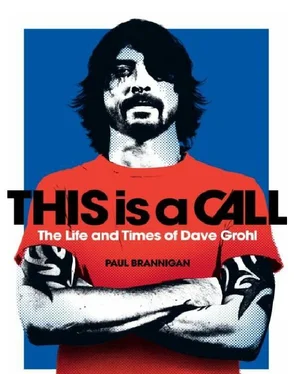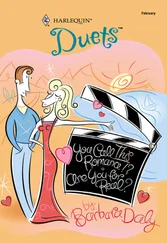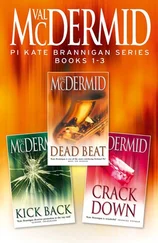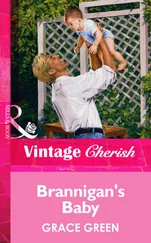Paul Brannigan - This is a Call
Здесь есть возможность читать онлайн «Paul Brannigan - This is a Call» — ознакомительный отрывок электронной книги совершенно бесплатно, а после прочтения отрывка купить полную версию. В некоторых случаях можно слушать аудио, скачать через торрент в формате fb2 и присутствует краткое содержание. Город: Cambridge, MA, Год выпуска: 2011, ISBN: 2011, Издательство: Da Capo Press, Жанр: Биографии и Мемуары, на английском языке. Описание произведения, (предисловие) а так же отзывы посетителей доступны на портале библиотеки ЛибКат.
- Название:This is a Call
- Автор:
- Издательство:Da Capo Press
- Жанр:
- Год:2011
- Город:Cambridge, MA
- ISBN:978-0-306-82051-9
- Рейтинг книги:3 / 5. Голосов: 1
-
Избранное:Добавить в избранное
- Отзывы:
-
Ваша оценка:
- 60
- 1
- 2
- 3
- 4
- 5
This is a Call: краткое содержание, описание и аннотация
Предлагаем к чтению аннотацию, описание, краткое содержание или предисловие (зависит от того, что написал сам автор книги «This is a Call»). Если вы не нашли необходимую информацию о книге — напишите в комментариях, мы постараемся отыскать её.
Nevermind
This is a Call — читать онлайн ознакомительный отрывок
Ниже представлен текст книги, разбитый по страницам. Система сохранения места последней прочитанной страницы, позволяет с удобством читать онлайн бесплатно книгу «This is a Call», без необходимости каждый раз заново искать на чём Вы остановились. Поставьте закладку, и сможете в любой момент перейти на страницу, на которой закончили чтение.
Интервал:
Закладка:
Of the songs on this second demo ‘I Can Only Try’ is a classic slice of teen angst (‘ I can’t promise perfection, I can only try ’), ‘Into Your Shell’ is a rallying call for noisy self-expression (‘ If you’re really upset and you don’t know what to do, then shout it out or talk it out, don’t crawl into your shell ’) while ‘Paradoxic Sense’, ‘Wonderful World’ and ‘Helpless’ tackle issues of growing up without giving in. The demo’s final track, ‘Now I’m Alone’, finds the singer picking over his father’s decision to leave the family home – ‘You could say that disappointment with fathers was a minor theme with MI,’ Page now wryly reflects – and celebrating the freedoms that came with his immersion in the DC punk community.
Delivering fully on the promise of their first demo, the tape showcases a committed, articulate, progressive young band gearing up for adult life with defiant self-belief: ‘ Now I’m off to face a new horizon ,’ Chris Page sings, ‘ but I don’t think I’ll be alone. ’ These words would carry an added emotional resonance in the months ahead.

In spring 1985 unmarked envelopes were pushed through the letterboxes of a number of homes in Washington DC and suburban Virginia. Each envelope contained a photocopied leaflet, styled to resemble a kidnap ransom note, bearing messages such as ‘Wake up! This is… REVOLUTION SUMMER!’ and ‘Be on your toes. This is… REVOLUTION SUMMER’. Recipients of the letters were initially bemused, then intrigued, curious not only to discover the identity of the anonymous letter-writer and the meaning of the note, but also as to who else might have received one. A common thread quickly emerged: everyone sent a ‘Revolution Summer’ missive had been active on the DC hardcore scene at the beginning of the decade.
The letters were traced back to the office of the Neighbourhood Planning Council, a small administrative body set up by the DC Mayor’s office to host community meetings and schedule an annual free summer concert series in nearby Fort Reno Park. Located next to Woodrow Wilson High School, the office had become a de facto drop-in centre for local punks to hang out and drink sodas. While they were there they had access to Xerox machines in order to run off flyers, posters and fanzines. It subsequently emerged that the letters had been sent out by Dischord staffer Amy Pickering as a playful way to get old friends talking together once again.
The plan proved extremely effective. Pickering’s missives opened up new dialogues among the hardcore class of ’81, who began mulling over their own involvement in the punk community, debating whether it was the scene, or they themselves, that had changed with the passing years. They wondered if, and how, the idealism and integrity that had fuelled that nascent community could be rekindled. As these conversations continued, many within the group made a conscious decision to try to redefine their world. Some started new bands, others formulated new ideas and made renewed commitments to re-engaging with the social and political issues affecting their community. As Ian MacKaye explained to Suburban Voice fanzine in 1990, the phrase ‘Revolution Summer’ itself meant ‘everything and nothing’, but it was the ‘kick in the ass’ he and his friends needed.
‘We all decided that this is it, Revolution Summer,’ MacKaye told the fanzine. ‘Get a band, get active, write poetry, write books, paint, take photos, just do something. ’
For Beefeater frontman Thomas Squip, another resident of Dischord House, Revolution Summer was more than just a time of musical rebirth. As he explained to Flipside in a July 1985 interview, he considered Revolution Summer to be about ‘putting the protest back in punk’. The Swiss-born singer was soon backing up his words with action. That same month he helped organise the Punk Percussion Protest, a noisy anti-apartheid rally which saw scores of young punks gather on Massachusetts Avenue to bang on drums, buckets and bins outside the South African Embassy. Soon, in close co-operation with newly formed activist group Positive Force, DC punks – including the members of Mission Impossible – were lending their voices to a wide range of causes, from protests against America’s clandestine war in Nicaragua to benefit concerns for civil liberties organisations, community clinics and homeless shelters. Chris Page remembers the time as ‘eye-opening, empowering and transformative’. With delicious irony, DC punks were taking Reagan’s ‘we must do what we know is right and do it with all our might’ words to heart, and using them in opposition to some of his most reactionary policies.
In June the new wave of DC punk was showcased by a seven-inch compilation, put together by Metrozine editor Scott Crawford in collaboration with Gray Matter man Geoff Turner’s label WGNS. Its title, Alive & Kicking , was intended as a defiant rebuttal to those hardcore zealots who considered the DC scene as dead as the American Dream. Crawford selected for inclusion Mission Impossible’s ‘I Can Only Try’, alongside tracks by Beefeater, Marginal Man, United Mutations, Gray Matter and Cereal Killer: once again, over in Berkeley, maximumrocknroll gave positive feedback.
That same month also saw the release of the first record on Dischord for two years, the first, in fact, since Minor Threat’s Salad Days single. The self-titled début album by Guy Picciotto’s Rites of Spring could hardly have been more symbolic of the scene’s regeneration.
By common consent, Rites of Spring were Revolution Summer’s most inspirational band. They sang of love, loss, wasted potential and spiritual rebirth while attacking their instruments with a commitment, intensity and kinetic fury that saw guitars and amps reduced to matchwood. Their wiry, sinewy, high-tensile compositions eschewed hardcore formulas, choosing instead to strip away the genre’s machismo in order to expose its raw, sensitive, bleeding heart. RoS shows were genuine events that saw audiences moved to tears by the group’s passionate and cathartic outpourings. They would play just fifteen shows in their short history, and Dave Grohl says that he was present at every one of them.
‘A lot of people don’t realise the importance of that band, but for us they were the most important band in the world,’ he remembers. ‘They really changed a lot in DC. They played every show like it was their last night on earth. They didn’t last long, but then for bands in Washington DC a career in music was never the intention. The motivation was “Let’s get together and fucking blow this place up, until we can’t blow it up any more.” Once the inspiration or electricity felt like it was fading, or once a band started to feel like a responsibility, they’d just break up. It was all about that moment. But those moments were so special to us.’
July 1985 also saw the return to the stage of DC hardcore’s spiritual leader. Ian MacKaye’s new band Embrace may not have been as musically adventurous as Rites of Spring, but they were a powerful, emotive unit in their own right. As with his previous band Minor Threat, Embrace asked a lot of questions, but this time MacKaye’s rage was for the most part directed inwards, as he dissected his own foibles and flaws in unflinching, forensic detail. In part, this soul-searching was sparked by MacKaye’s admiration for DC’s younger punk set. When he looked at bands such as Mission Impossible and their peers Kid$ for Ca$h and Lünchmeat, MacKaye saw a new breed of idealistic, gung-ho teen punks operating in blissful, stubborn denial of hardcore’s demise, a poignant echo of his own reaction to premature reports of the death of punk rock: it made him wonder at what point he stopped believing. ‘Those kids were super enthusiastic and it reminded us of our younger selves,’ he recalls. ‘It was inspiring to see high school kids playing again.’
Читать дальшеИнтервал:
Закладка:
Похожие книги на «This is a Call»
Представляем Вашему вниманию похожие книги на «This is a Call» списком для выбора. Мы отобрали схожую по названию и смыслу литературу в надежде предоставить читателям больше вариантов отыскать новые, интересные, ещё непрочитанные произведения.
Обсуждение, отзывы о книге «This is a Call» и просто собственные мнения читателей. Оставьте ваши комментарии, напишите, что Вы думаете о произведении, его смысле или главных героях. Укажите что конкретно понравилось, а что нет, и почему Вы так считаете.












